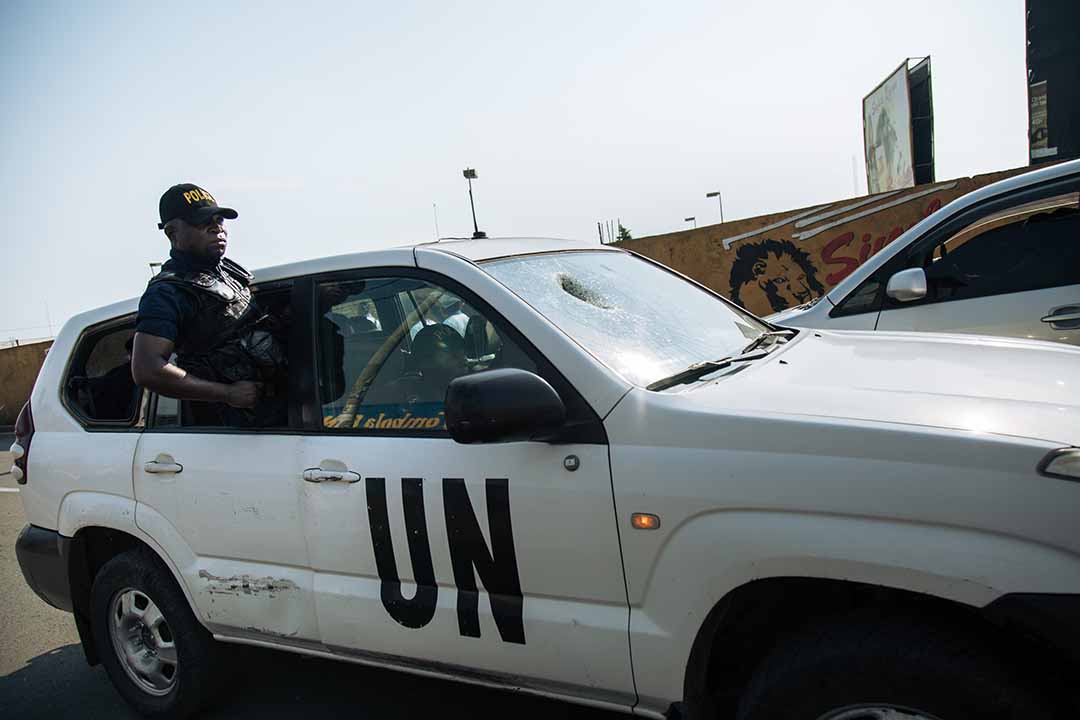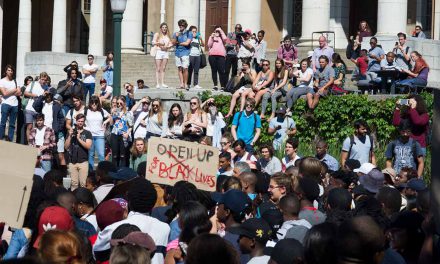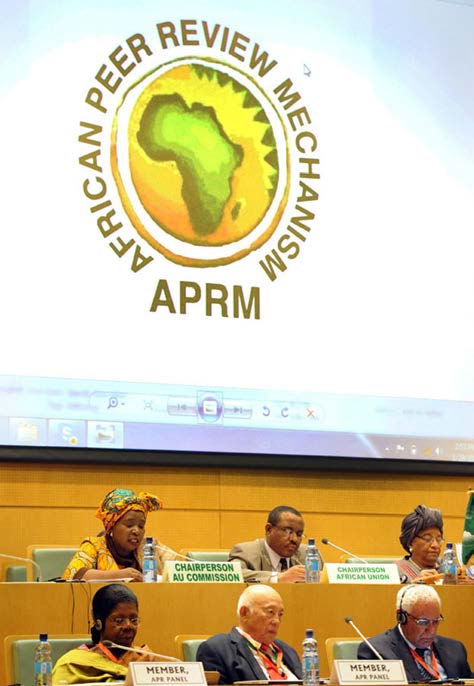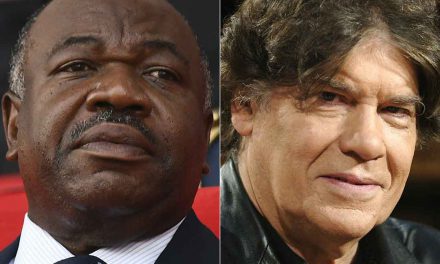Transnational brokering: a complex web
Businesses and criminal syndicates have both violated United Nations arms embargoes, sometimes with the collusion of corrupt state officials

A vehicle of the United Nations Peacekeeping Mission in the DRC (MONUSCO) passes in front of Goma airport in June 2019 after it was stoned by angry protestors. Photo: ALEXIS HUGUET / AFP
Arms brokering or inter-mediation is a commercial activity within the international arms trade that is difficult to regulate. Arms brokers often operate transnationally, so often escaping or avoiding national trade controls in their home countries and the countries where transactions have taken place. Their transnational operations also create “grey” markets, which sometimes fuel illicit markets. Between a quarter and a third of states claim to have some form of arms brokering regulation but many of those regulations are weak. This is especially a challenge for African countries, which have to import arms, yet lack the capacity to control borders and ports. Leaders around the continent tend to politicise and militarise law enforcement, while deprived communities engage in intense competition over water, land and other scarce resources. These factors tend to drive up demand for weapons, according to research published in 2018 by Institute for Security Studies Chief Executive Jakkie Cilliers and in 2013 by Robert Muggah and Francis Sang.
This was tragically demonstrated in the case of the international arming of the perpetrators of the Rwandan genocide in the early to mid 1990s. Indeed, the term “arms broker” was first mentioned in official United Nations (UN) investigative reports about the genocide. According to their submissions to the UN, by 2011 only eight African states had a specific law on arms brokering, while eight more states had their law under review. Yet, by 2017 these totals had barely changed. In the past five years, 26 African states became state parties to the Arms Trade Treaty, Article 10 of which requires parties to regulate the brokering of a wide range of conventional arms under their jurisdiction. Some 35 states in Africa are also state parties to the UN Firearms Protocol, Article 15 of which reads: “shall consider establishing a system for regulating the activities of those who engage in brokering”.
Specific measures such as licensing, registration and penalties are left to the discretion of state parties. African sub-regional treaties on small arms also commit the majority of African states to regulate brokering. These regional treaties are: Protocol of the Southern African Development Community (SADC) on the control of Firearms, Ammunition and Other Materials (2001); Nairobi Protocol for the Prevention, Control and Reduction of Small Arms and Light Weapons in East Africa, the Great Lakes and the Horn of Africa (2002); Convention of the Economic Community of West African States (ECOWAS) to Combat and Eradicate the Illicit Trade in Small Arms, Light Weapons, their Ammunition and Other Related Materials (2006); and The Central African (Kinshasa) Convention for the Control of Small Arms and Light Weapons, Their Ammunition and All Parts and Components That Can Be Used For Their Manufacture, Repair and Assembly (2010).
One challenge facing legislators is to define what is meant by the term “brokering”, and hence who is a “broker”. There is no definition of brokering in the UN Firearms Protocol or Programme of Action (PoE) on small arms and light weapons, or in the Arms Trade Treaty (ATT). However, some international consensus has emerged among European states, the Americas and sub-Saharan Africa over the past decade as regards what arms brokers do and how they operate. This makes it possible for states to define the core scope of arms brokering activities and establish the main types of measures that can be deployed for such regulation. The 2007 report of the UN Group of Governmental Experts (GGE) on illicit brokering of small arms and light weapons (SALW) described a broker in SALW as: “[a] person or entity acting as an intermediary that brings together relevant parties and arranges or facilitates a potential transaction of small arms and light weapons in return for some form of benefit, whether financial or otherwise”.
The term “potential transaction” was included because the brokering activities can take place long before the actual contract is signed or a shipment of the arms has taken place. The GGE identified the following types of “intermediary activities” involving a broker of SALW: (a) to serve as a finder of business opportunities to one or more parties; (b) to put relevant parties in contact; (c) to assist parties in proposing, arranging or facilitating agreements or possible contracts between them; (d) to assist parties in obtaining the necessary documentation; (e) to assist parties in arranging the necessary payments. The GGE also discussed those “activities closely associated with brokering in small arms and light weapons that do not necessarily in themselves constitute brokering” but which “might be undertaken by brokers as part of the process of putting a deal together to gain a benefit”. The Southern African Development Community and Nairobi Protocols define brokering in such a way as to include mediation as well as buying and selling.
In the ECOWAS and Kinshasa Conventions, for example, the definition of “broker” includes “the provision of financial support and transportation” and “financial and shipping agents”. Another challenge is to define whether the national law on arms brokering covers any extraterritorial aspects. The GGE report on illicit brokering of SALW pointed out that “[b]rokering activities can take place in the broker’s country of nationality, residence or registration; they can also take place in another country. The small arms and light weapons do not necessarily pass through the territory of the country where the brokering activity takes place, nor does the broker necessarily take ownership of the small arms and light weapons”. Thus, for example, South Africa’s arms brokering legislation also has extraterritorial application: any citizen, permanent resident or organisation registered or incorporated in South Africa is bound by the regulations, regardless of their physical location when the relevant activities occur.
US legislation on arms brokering has even stronger extraterritorial provisions, also covering US and non-US nationals who broker potential transactions for the transfer of US-made military equipment or technology wherever located. Such people can be prosecuted if they do not have prior authorisation from the US State Department. In a recent case, on 15 May, 2019, Ara Dolarian, a US citizen living in Bulgaria, was arrested in California on suspicion of illegally brokering the sale of military-grade arms and munitions, money laundering and conspiracy. Dolarian is the president of Dolarian Capital Inc. (DCI), an arms brokering company with offices in Fresno, California, Washington DC, and Bulgaria. US prosecutors allege that in June 2014 Dolarian entered into sales contracts with a French/Nigerian arms brokering company, Societé D’Equipments Internationaux (SEI) Nigeria Ltd, which was acting on behalf of the Nigerian government, for the purchase and transfer of high-explosive bombs, rockets, military-grade firearms and aircraft-mounted cannons worth more than $8.5 million.
Court records showed that in 2018, Dolarian attempted to broker an arms deal to supply the Cameroon government with 1,000 M-4 rifles and 4,000 magazines without the approval of the US State Department. Dolarian was also accused of attempting to broker an arms deal with Paul Malong, a South Sudanese warlord living in Kenya, according to a government brief dated 20 May, 2019, case number 1:19-MJ- 00106-EPG. At the time of writing, the trial of Dolarian was yet to conclude. Until June 2019, Canada was one of the few highly developed states not to have established a specific law to control arms brokering, despite recommendations to do so from the Organisation for Security and Co-operation in Europe and the influential Wassenaar Arrangement; a multilateral export control regime comprising the world’s most significant arms exporters of dual-use technology and conventional weapons.
The new Canadian law is similar to that of South Africa and came into force in September, but on 7 May, a Montreal company, Dickens & Madson, which is headed by a former Israeli intelligence officer who is a Canadian citizen, signed a contract with the Transitional Military Council of Sudan for the provision of various services. According to Amnesty International’s review of a copy of the contract, it includes commitments to “strive to obtain funding and equipment for the Sudanese military”; to “strive to obtain funding for [the TMC] from the Eastern Libyan Military Command in exchange for [Sudanese] military help to the LNA (Libyan National Army)”; and to “provide military training and security equipment to [Sudanese] military forces”. The head of the company confirmed in a telephone interview with the BBC on 1 July, 2019 that his company had signed the lobbying contract with Sudan’s military regime.
He said his company would seek to remove the international sanctions against Sudan; the proposed arms sales would then occur only after the removal of sanctions. This would be necessary because Canada has enacted UN Security Council sanctions restricting the supply of arms and related materiels to Sudan. Meanwhile, the head of Dickens & Madson has registered as a “foreign agent” in the US to lobby the government on behalf of the Sudanese military regime. Business actors and criminal syndicates have been found to be involved in violations of UN arms embargoes, sometimes with the collusion of corrupt state officials. For example, in 2011, UN investigators documented a case of extraterritorial brokering of arms deliveries to Ivory Coast while the country was under a UN Security Council arms embargo. The embargo was imposed in 2004 and lasted until 2016 with minor modifications from 2010, such as to allow non-lethal equipment for policing purposes.
According to the UN expert group, incontrovertible evidence demonstrated the modus operandi of repeated violations of the UN sanctions regime. They were carried out by a trafficking network composed of two business groups supported by key Ivorian officials with links in the west and north Africa regions, as well as various parts of Europe. Weapons and related material entered Côte d’Ivoire directly until 2009, sometimes with the approval of the authorities of the country of origin. Then in 2009 Senegal began to be used as a transit country for arms to Ivory Coast. Payments were charged to the Ivorian presidency’s budget, which was outside the control of the state’s financial bodies. Immediately after the Ivorian presidential elections of 2010, a large amount of ammunition for assault rifles, fragmentation grenades, 120 mm mortar shells and pistols was delivered to the Special Security Command (Centre de commandement des opérations de sécurité) in flagrant violation of the sanctions regime.
According to the UN expert group, three key businessmen – French nationals Robert Montoya and Frédéric Lafont, as well as a Belarusian national, Mikhail Kapylou, who all used Ivorian passports – were involved, directly or indirectly, in a complex structure of companies based in Ivory Coast, Tunisia and Latvia, enabling them to violate the sanctions regime. From 2006 to 2010, Protec-CI, Protec-SA and Darkwood Logistics sold weapons and related materiel to the former government of Ivory Coast for about $16.3 million, but an opaque system of payments could mean that this total was higher. Corroborating information showed money transfers originating from the Ivory Coast treasury for the benefit of Montoya, thereby highlighting his leading role in the network. In 2012, the UN Group documented arms imports that violated the UN arms embargo. The imports included pistols (made in France), revolvers, shotguns and associated ammunition.
They also included two types of fragmentation grenades: M26A9 grenades manufactured by Denel in South Africa and H.Gr 84 grenades, which were counterfeited copies of grenades manufactured in Austria, and suspected to have originated in Serbia. Despite the serious harm that can result from illicit arms brokering, prosecutions are still fairly rare, not least because of the absence of adequate legislation. However, another reason is that brokering networks can be very complex and opaque. In a recent case, a Belgian national, Jacques Monsieur, was sentenced on 1 June, 2017 to three years’ imprisonment and an €800,000 fine by a Brussels court for illicit arms brokering between 8 April, 2006 and 3 May, 2009, based on articles 10 and 11 of the Federal Law of 5 August, 1991. Monsieur was acquitted of organised crime charges and money laundering. However, the court upheld the charges that he had brokered $15 million worth of arms sales for Guinea-Bissau between 9 April, 2006 and 21 April 2006.
This included four Mi-24D attack helicopters, one MI- 8T helicopter and 10 BTR-8 armoured personnel carriers. An email from Monsieur dated 17 April, 2006 mentioned a 5% commission to be divided between the defendant, the UK financial institution that financed the deal, and a Guinea-Bissau minister. Charges upheld also included the sale of 100,000 AMD-65 assault rifles to Libya between 22 October, 2006 and 30 November, 2006, and the sale of naval equipment to Mauritania between 13 March, 2009 and 4 April, 2009. Monsieur lost his appeal and on 19 October, 2018 the Brussels Court of Appeals sentenced him to four years’ imprisonment and a fine of €1.2 million. The appeals court also upheld the organised crime charges against him. His second appeal was pending at the time of writing. Illicit arms brokering often involves elaborate offshore schemes for money laundering. Between 2005 and 2007, Gary Hyde, an arms dealer based in the United Kingdom (UK), together with his German business partner, Karl Kleber, brokered agreements for the sale of arms from China to the Nigerian government.
These had been arranged between a Chinese company, China Jing An (later assigned to another Chinese company, Poly Technologies Inc), and two companies acting for the Nigerian purchasers. The shipment of no less than 70,000 rifles, 10,000 pistols and 32 million rounds of ammunition from China to Nigeria took place in November 2007, according to the British court judgment in the 2014 case. Hyde signed agreements in the name of EWH Consultancy Ltd, which the crown prosecution stated was a company incorporated in the British Virgin Islands under his control, and under which he was to receive commission fees totalling $1,337,800. He intended to receive his commission in bank accounts in Liechtenstein, which he apparently operated to reduce his tax liability. He used corporate vehicles – including EWH Consulting Ltd and various trusts of which he and his family were beneficiaries – to receive the commission from the deal. Hyde took considerable care initially to broker the contract from outside the UK, thinking that he could avoid having to obtain a UK trade licence.
However, between March 2006 and December 2007 Hyde worked from the UK and used the firm Jago Ltd in England as his correspondence address in managing the deal. During this time he sent letters using the Jago Ltd letterhead and emails using his York Guns and Jago Ltd email addresses in the UK. Although those companies were not the formal contracting partners, the UK prosecutors contended that their bona fides lent credibility and substance to the applicant’s role as a broker acting from the UK and therefore requiring a UK trade licence. The authorities learnt of this transaction, and on 18 November, 2009, Hyde was interviewed. He declined to answer questions, but maintained, through his solicitor, that his business dealings had taken place outside UK jurisdiction. However, the court held that the renegotiation of a contract leading to its variation or assignment did, as a matter of law, fall within UK law.
He was charged with two offences under Article 9(2) of the Trade in Goods (Control) Order 2003: deliberate involvement in the movement of arms with an intention to evade the prohibition under Article 4 and concealing criminal property, contrary to section 327 of the Proceeds of Crime Act 2002. The latter charge was based on argument that he had concealed his profits from the illegal trade in his Liechtenstein bank account. Illicit arms brokering can also aid and assist mercenaries and encourage terrorism – contrary to UN Security Council resolution 2370 (2017). For example, on 15 November, 2018 Rami Ghanem, a naturalised US national living in Egypt, was found guilty in the US of conspiring to use and transfer anti-aircraft missile systems. On 29 October, 2018, the day before his trial started, Ghanem pleaded guilty to six other federal crimes stemming from his arms-trafficking activities, including the unlicensed export of weapons and ammunition, smuggling, money laundering and unlicensed arms brokering, according to the California Central District Court records.
Evidence presented in court showed that he had brokered the services of missile system operators to a militant faction in Libya in 2015, and thus conspired to use Russian-made Igla and Strela surface-toair missile systems, according to the US Attorney’s Office. A UN arms embargo had been imposed on Libya in 2011. Among other actions, Ghanem negotiated the salaries and terms of service of the missile system operators, coordinated their payment, facilitated their travel to Libya, and offered them a $50,000 bonus if they were to succeed in shooting down military aircraft flown by the internationally recognised government of Libya. Solving Africa’s illicit arms trade problems will require strict control of arms brokering, amongst other measures. This would be much easier if basic functions and features of government – such as effective legislatures, judiciaries, law enforcement, cross-border management, public procurement and military accountability – were operating effectively.
But Africa’s problem with arms brokers cannot be solved by remedial action only in Africa. Exporting states, as well as importing and/or transit and transhipment states outside Africa, should also have robust regulatory systems that comply with UN and other arms embargoes, as well as international weapon prohibitions and standards that are implemented. To be effective, the national regulations should be consistent with the ATT and other relevant international and regional instruments, including the UN conventions on transnational organised crime and corruption, and should cover the business activities of the country’s nationals and residents relating to any brokering of sales, transport and financing of arms deals.












